This document discusses prepositions and preposition phrases. It provides examples of different types of preposition complements including object NPs, NPs, predicative phrases, PPs, and clauses. It then asks the reader to identify the category of the complement in example sentences. Next, it discusses prepositional verbs and whether certain verb+preposition combinations are fossilized. It also discusses the differences between prepositions and adjectives. Finally, it asks the reader questions about preposition stranding, fronted prepositions, and restrictions on certain prepositions occurring with or without NP complements.
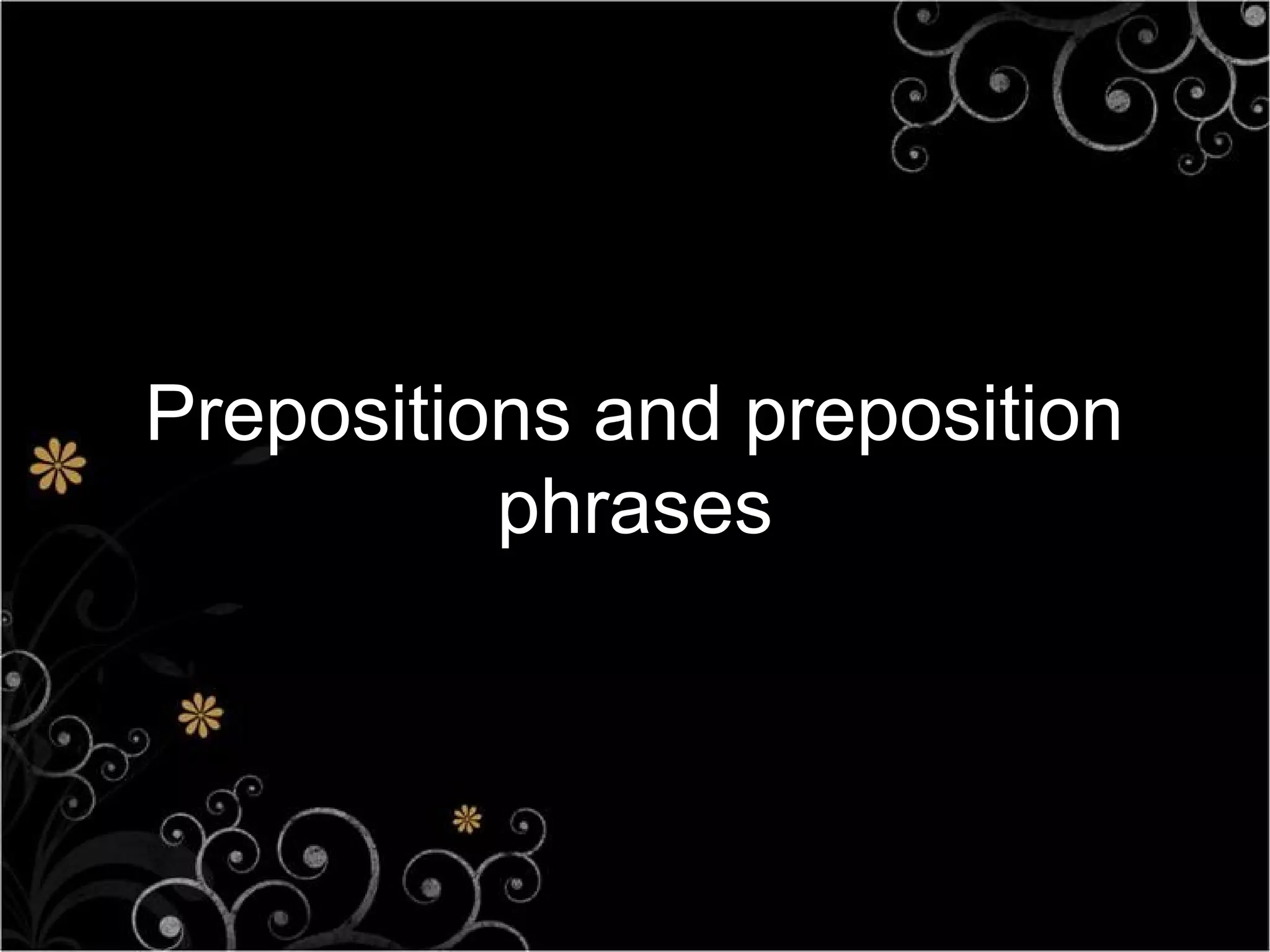
![Complements of prepositions
i. Object NP I was talking [to a friend].
ii. NP We left [before the last act].
iii. Predicative I regard her [as a friend].
iv. PP I stayed [until after lunch].
v. AdvP I won’t last [for long].
vi. Clause I left [because I was tired].](https://image.slidesharecdn.com/presentationchapter7-130130093937-phpapp02/75/Presentation-chapter-7-2-2048.jpg)
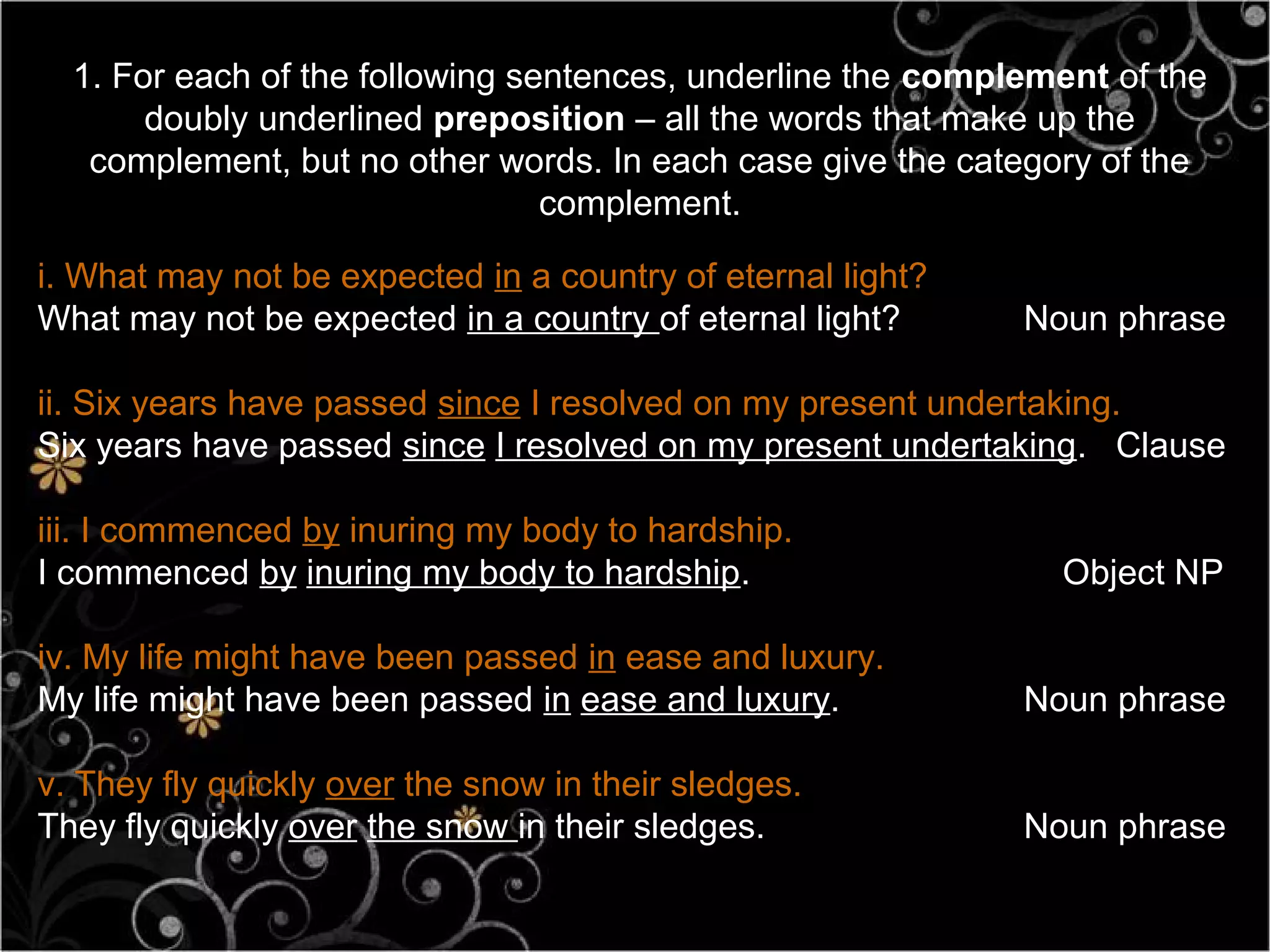
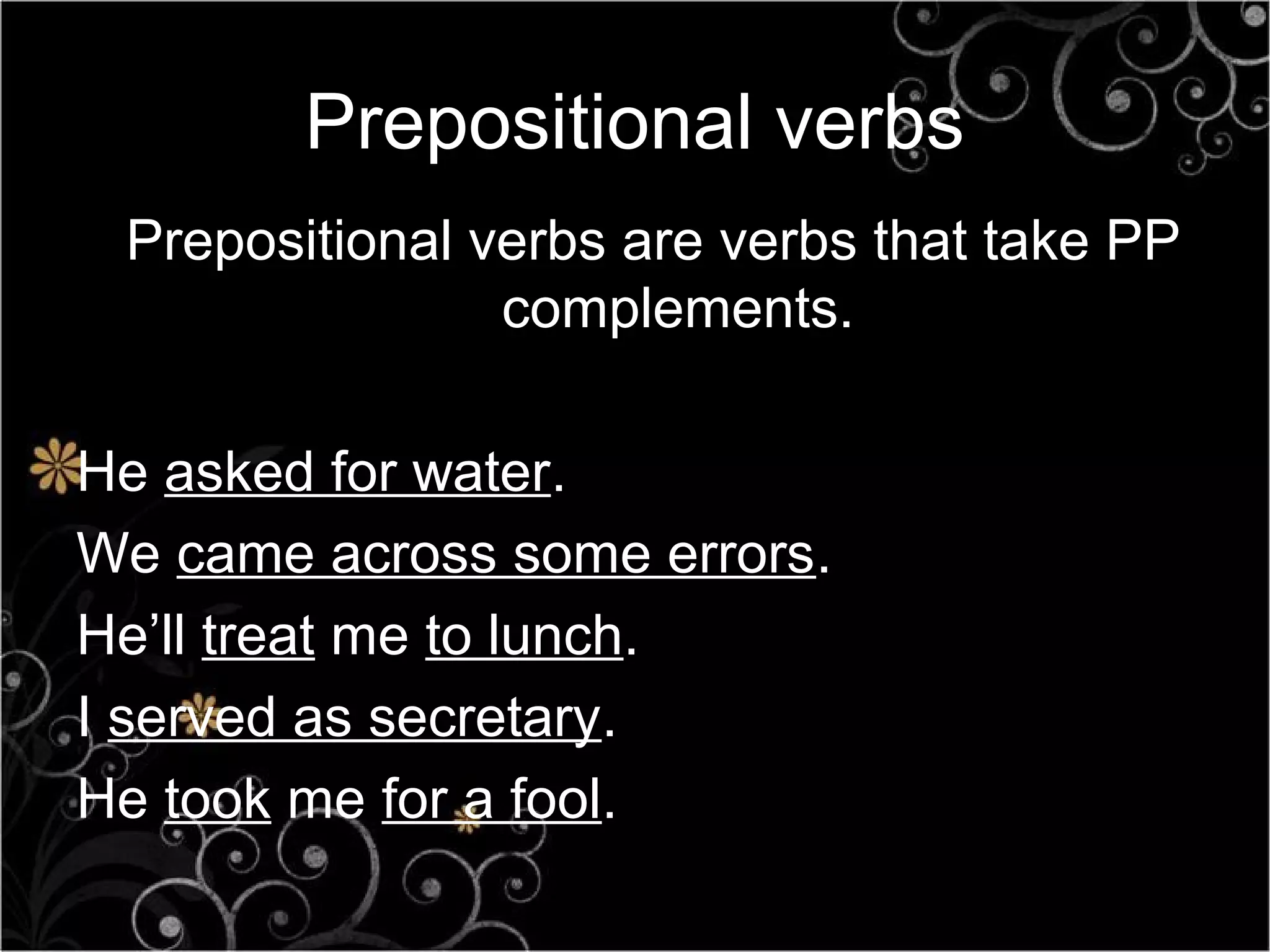
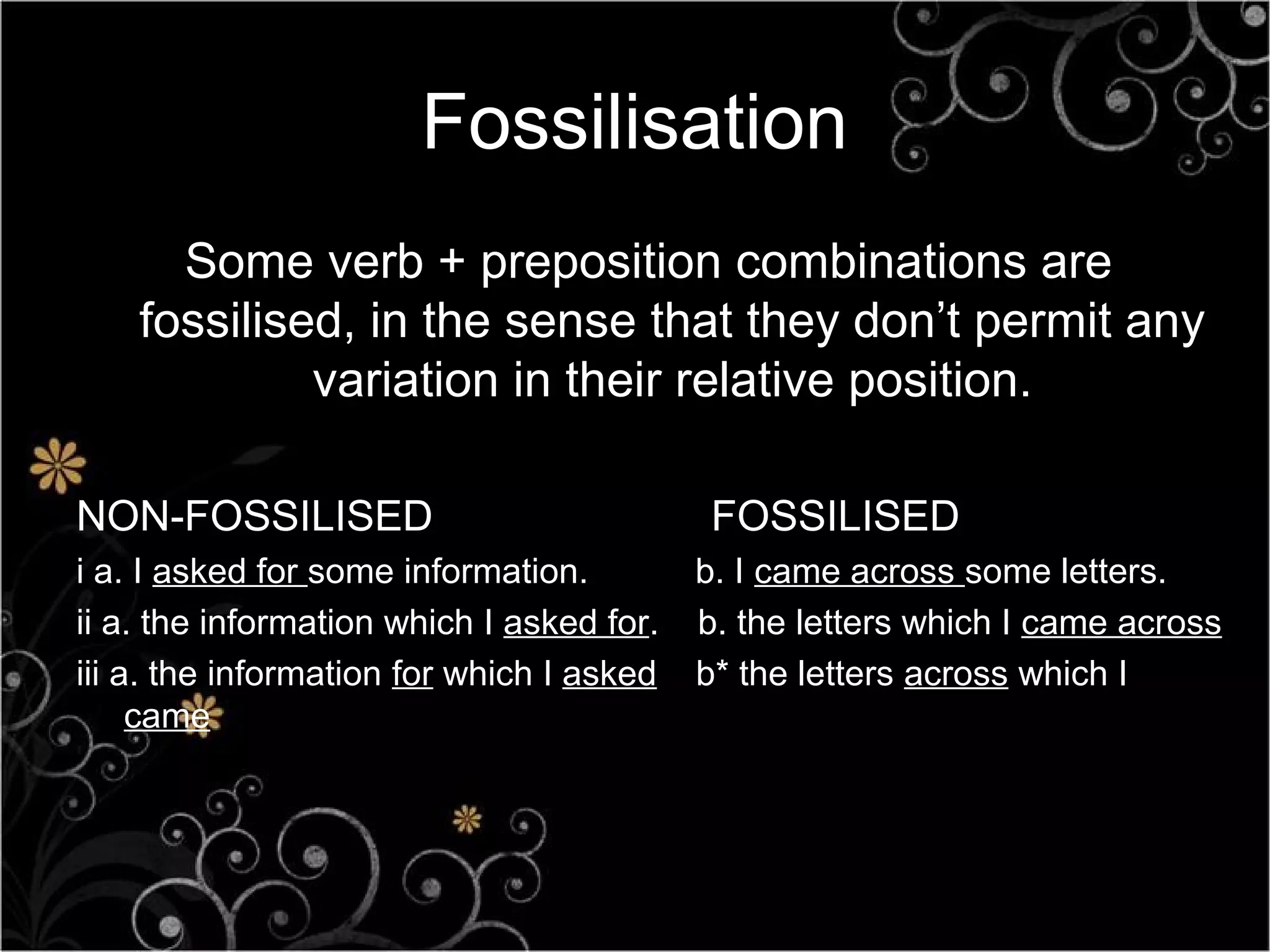
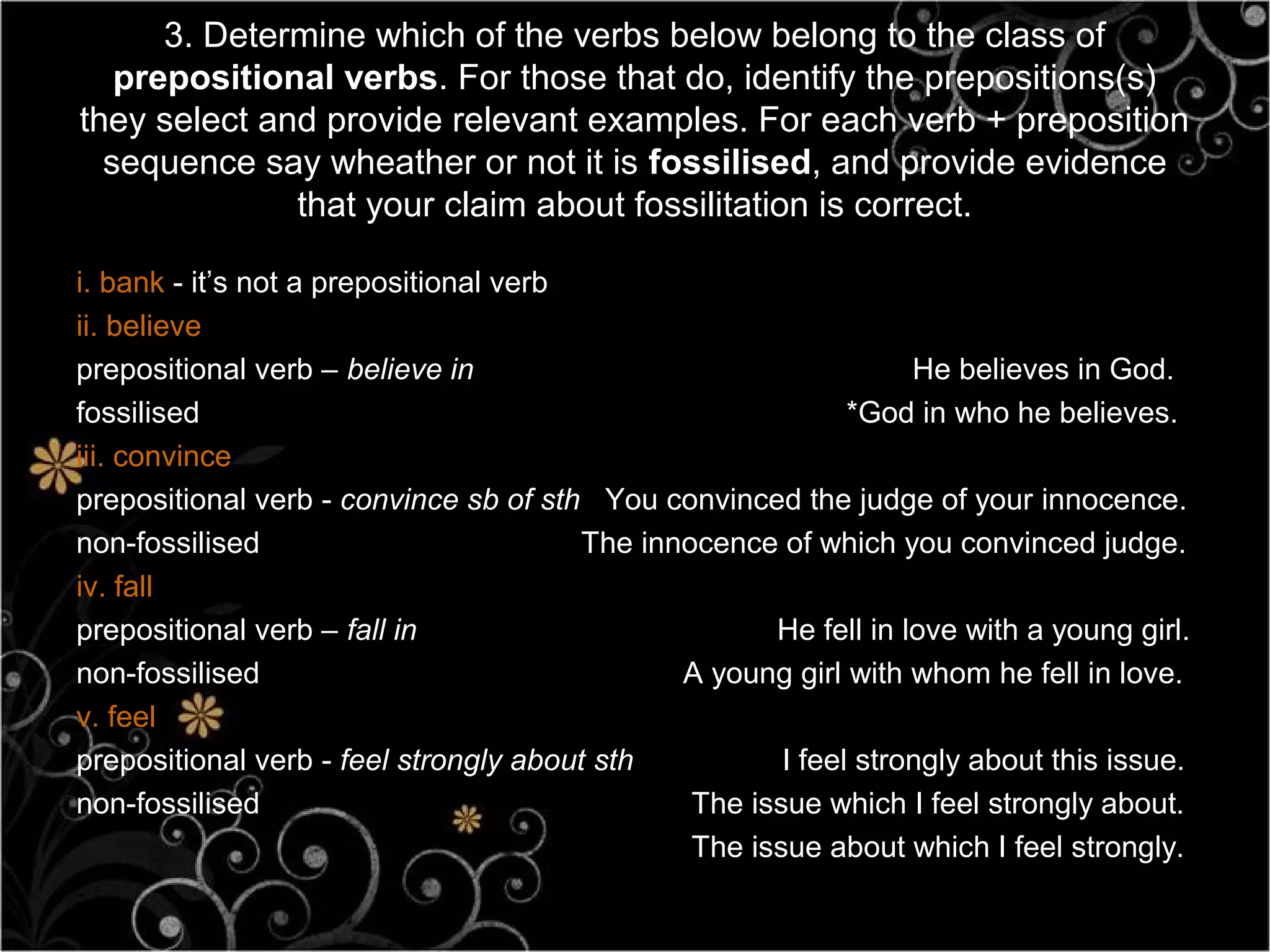
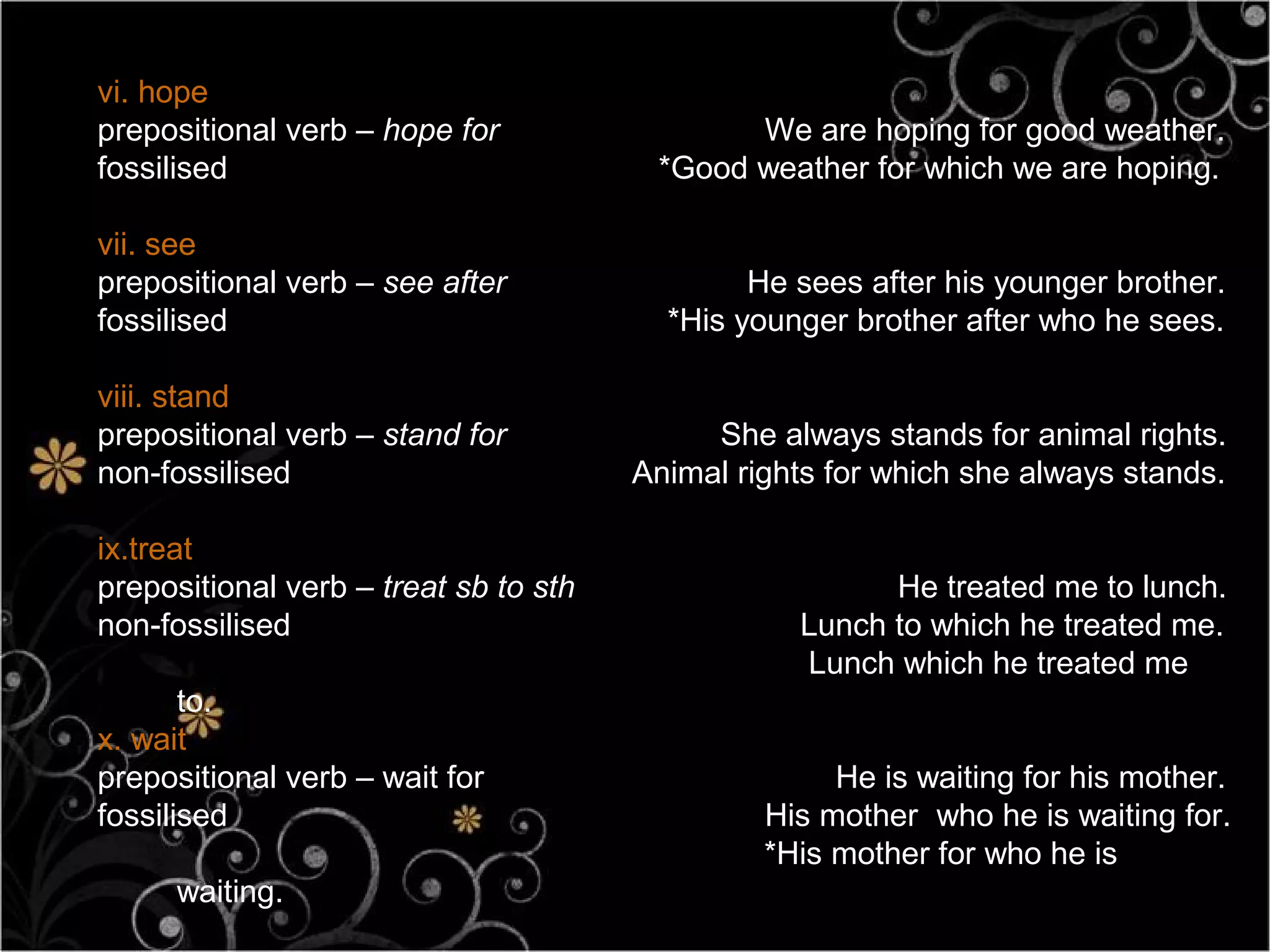
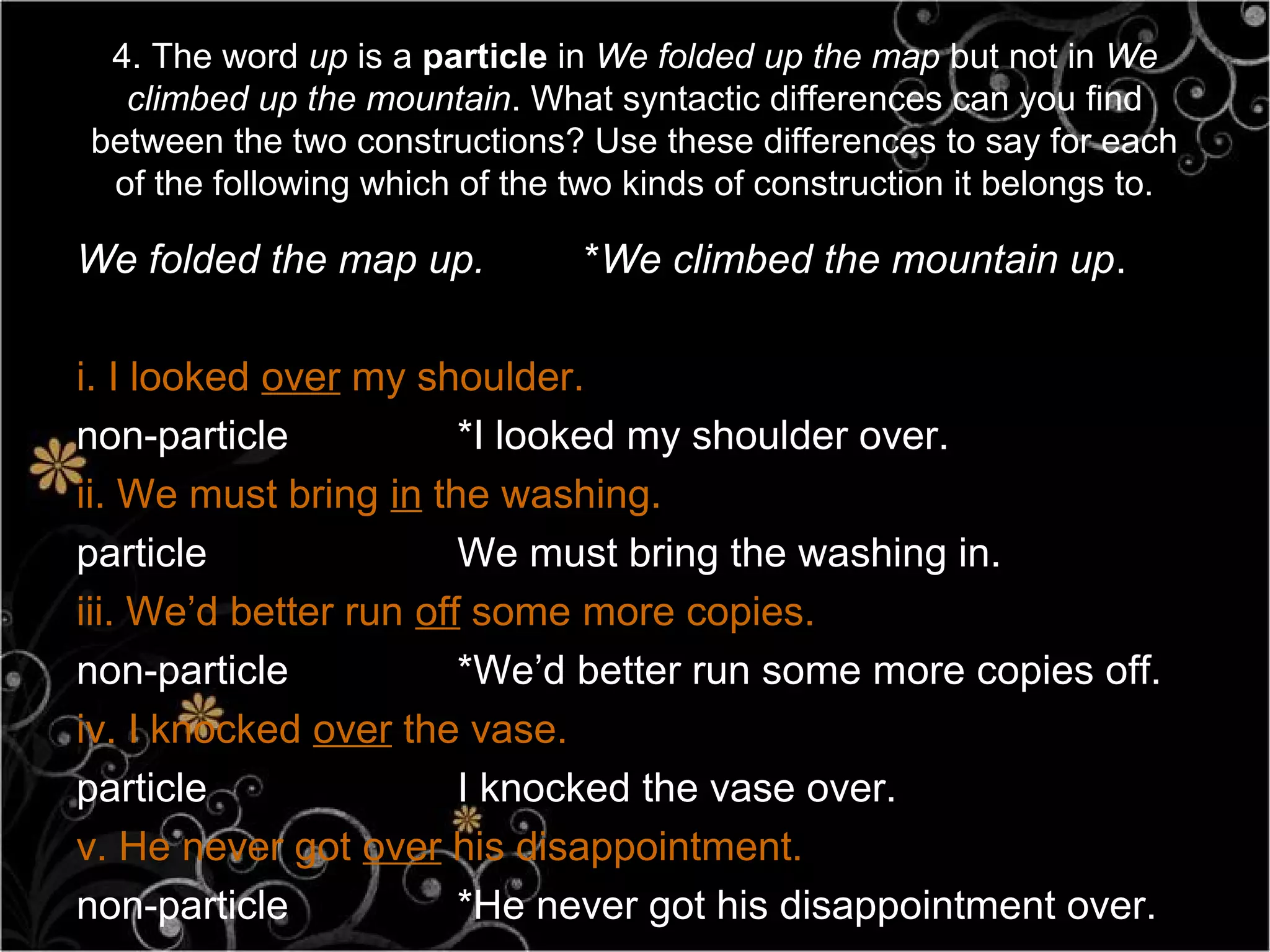
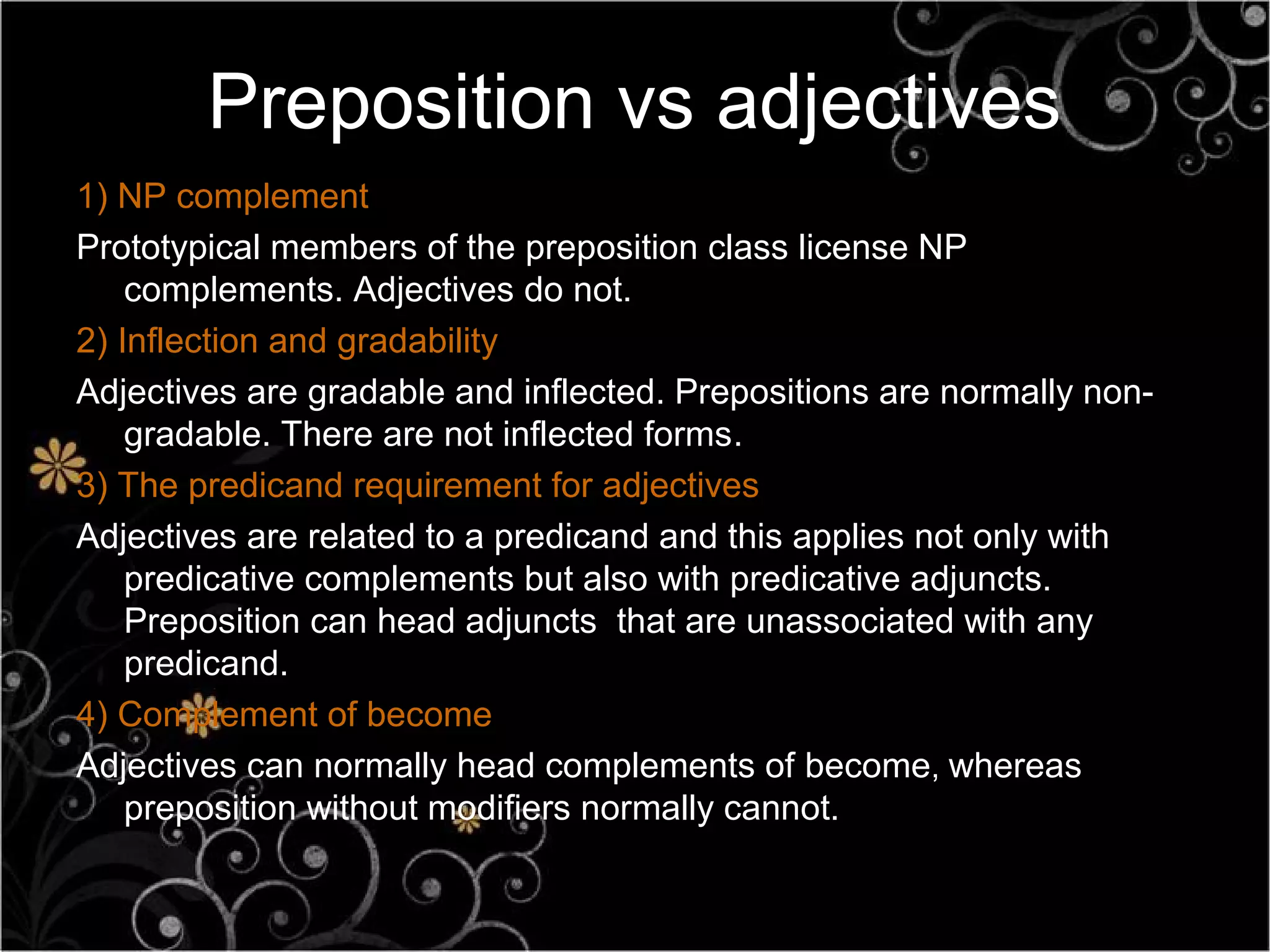
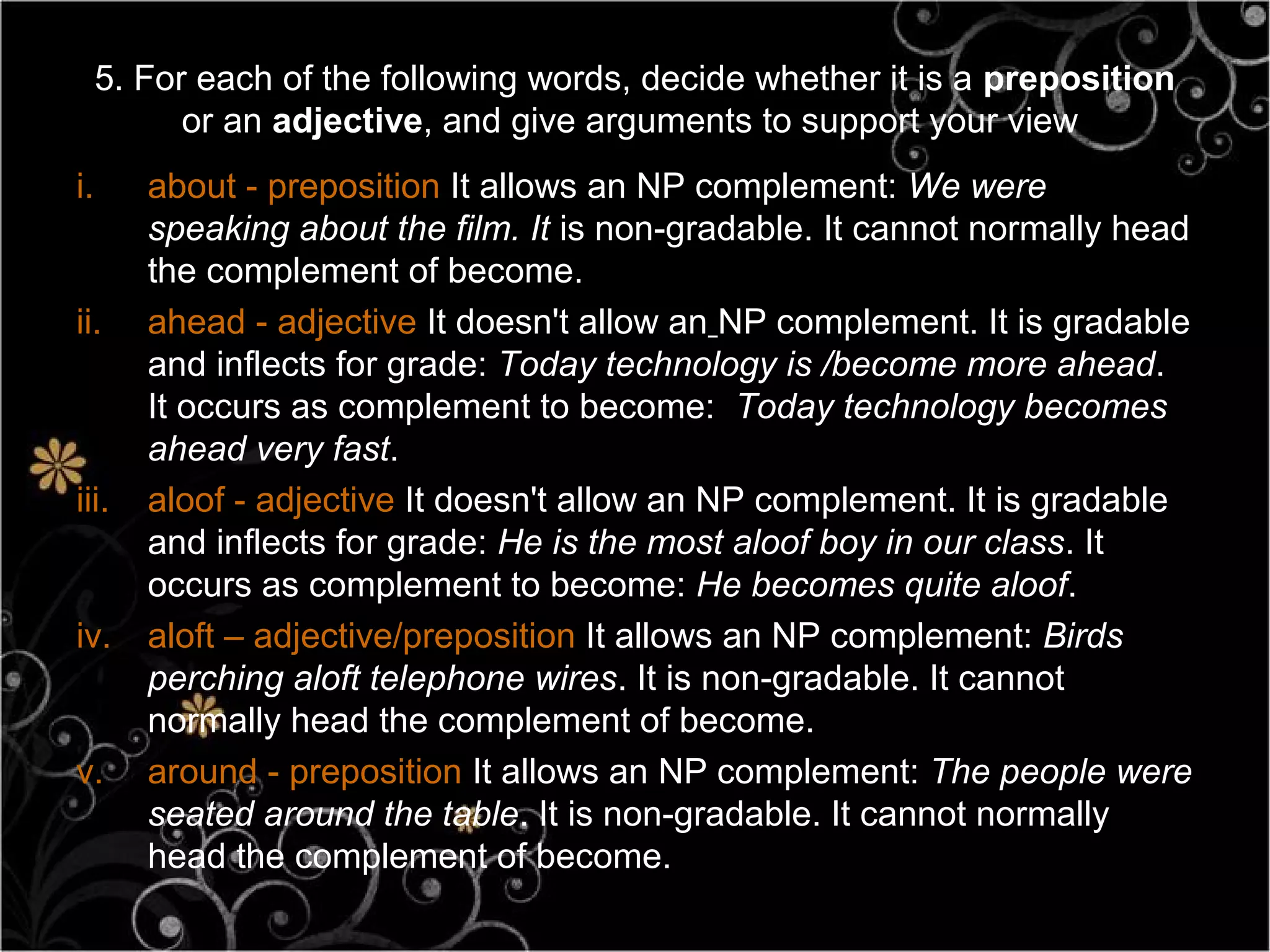
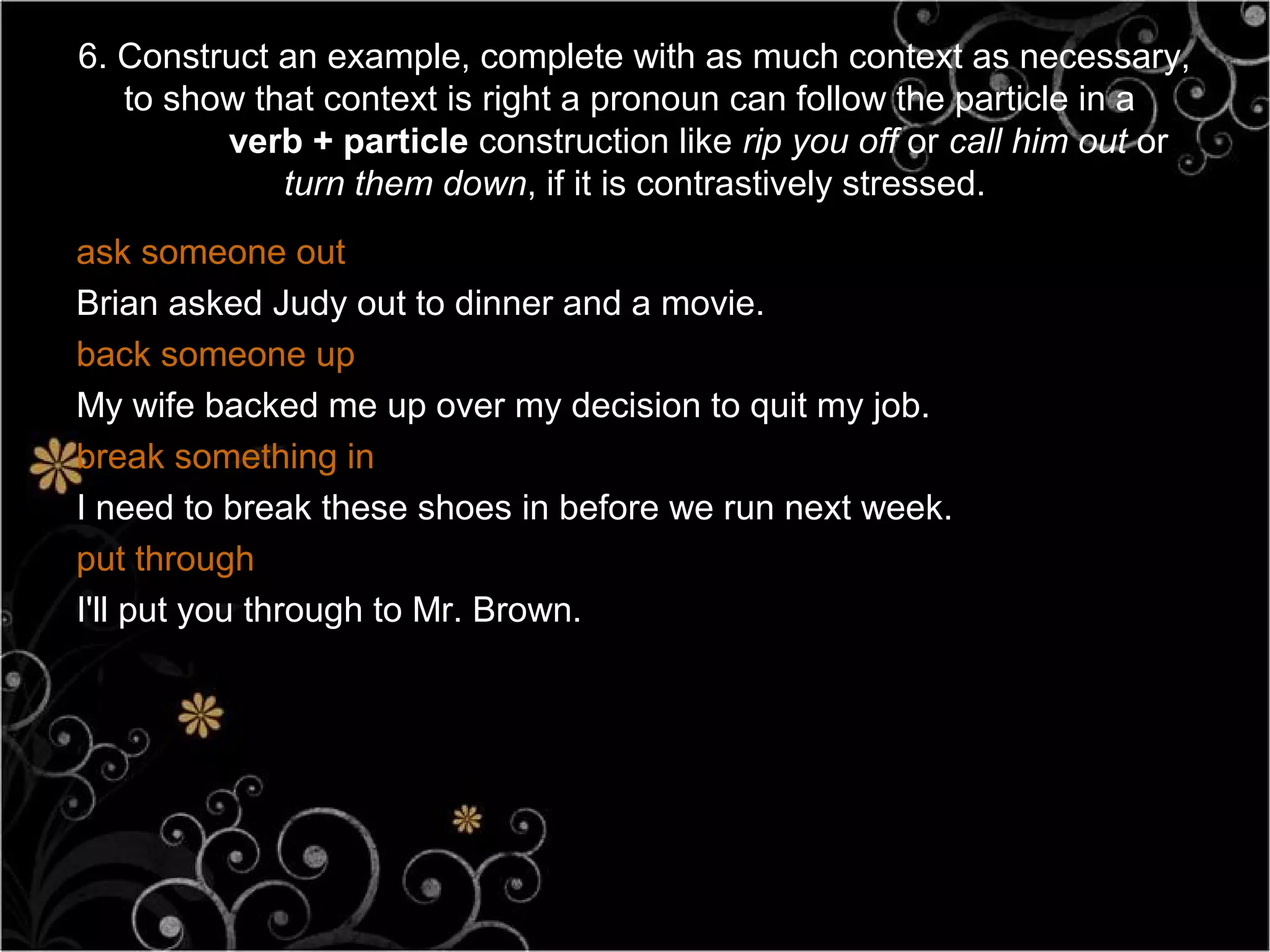
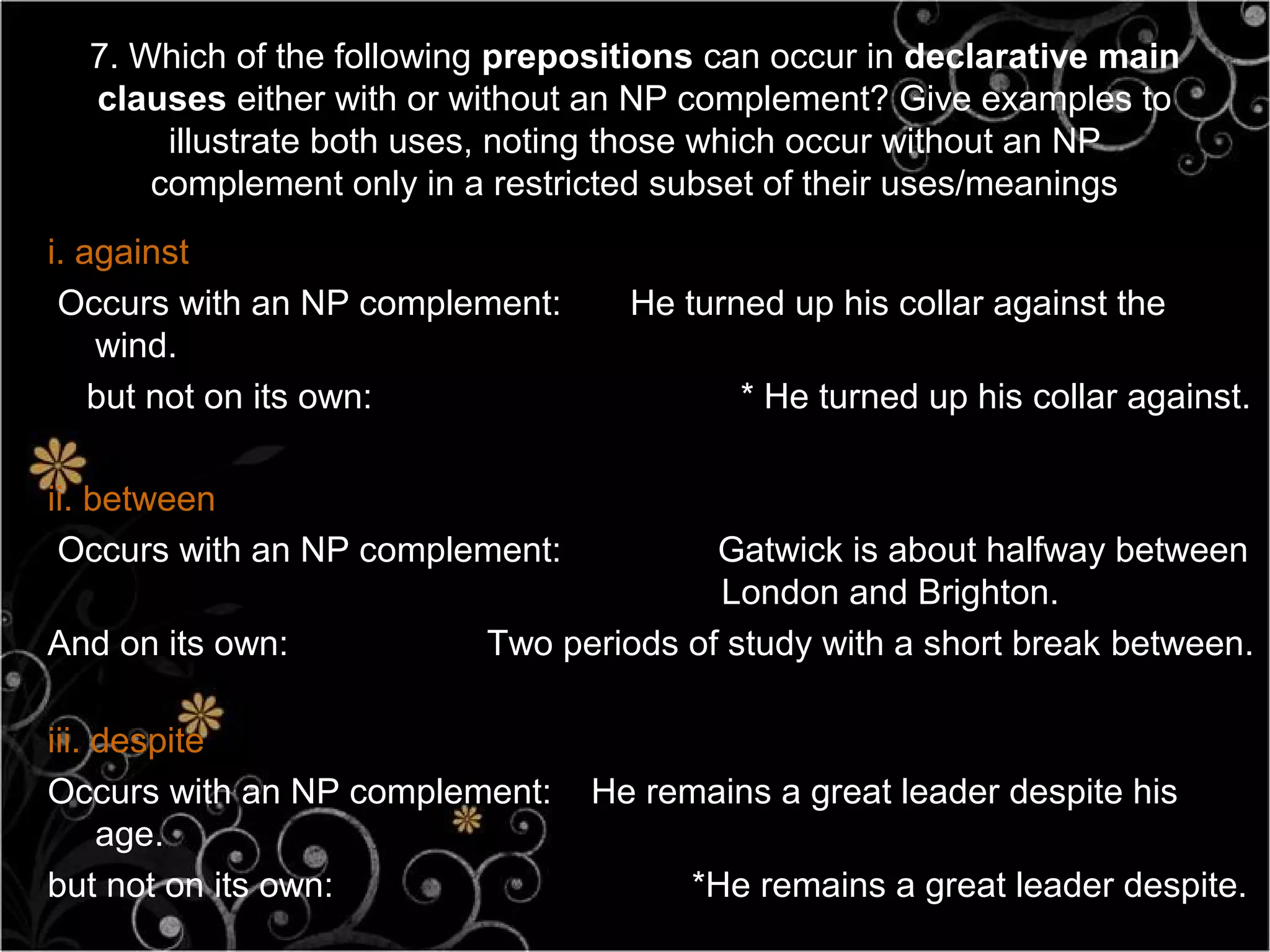
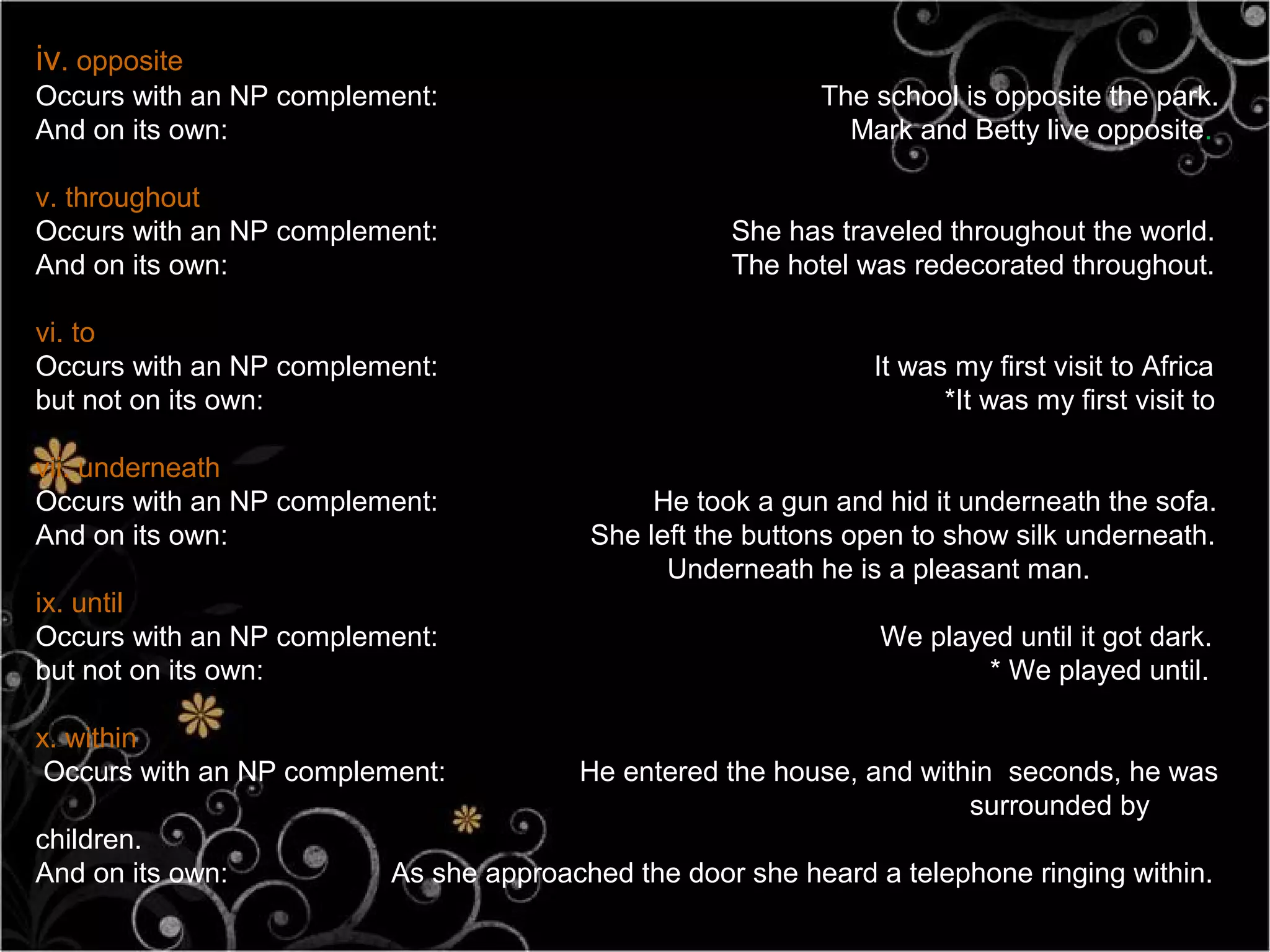
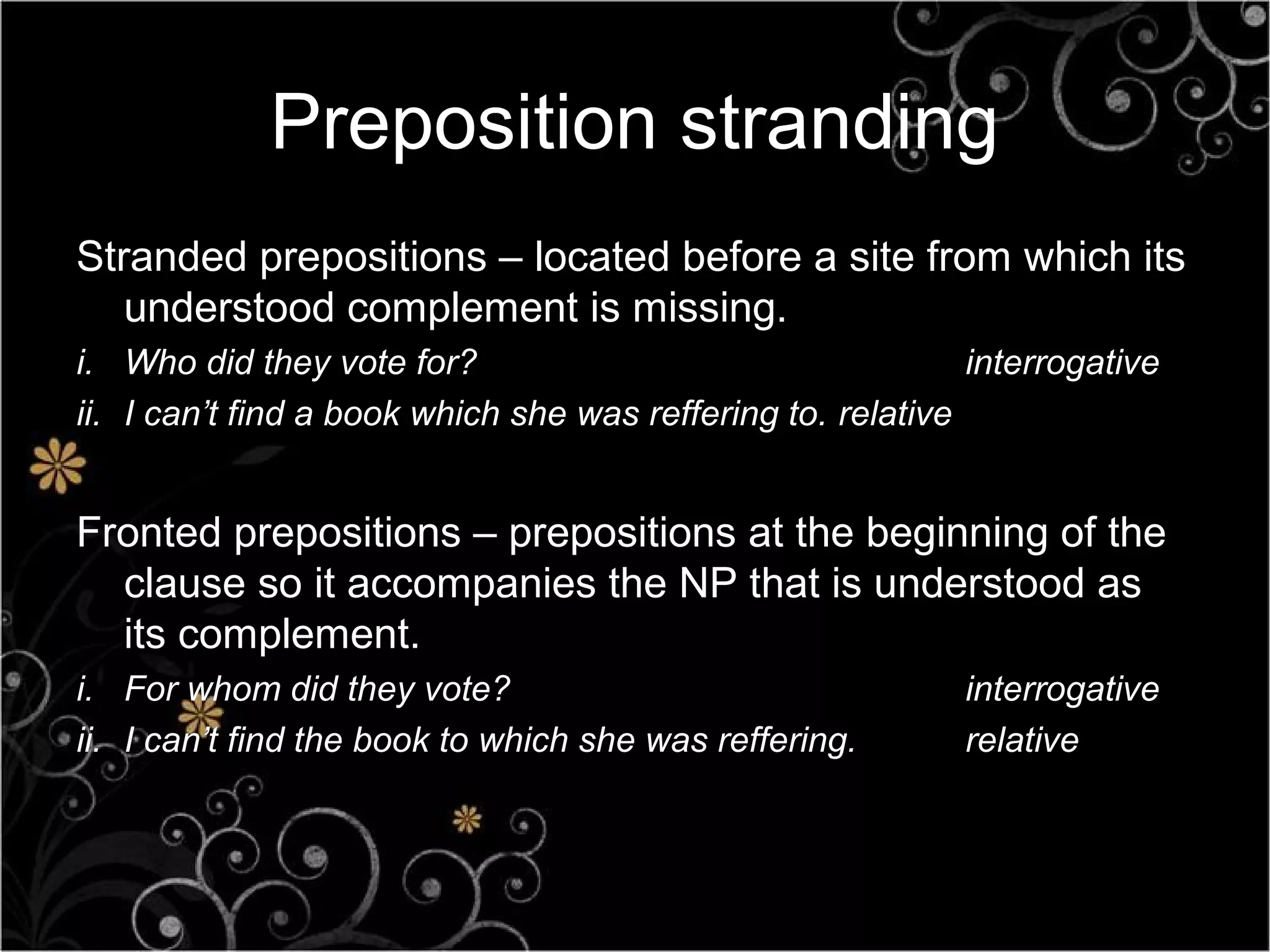
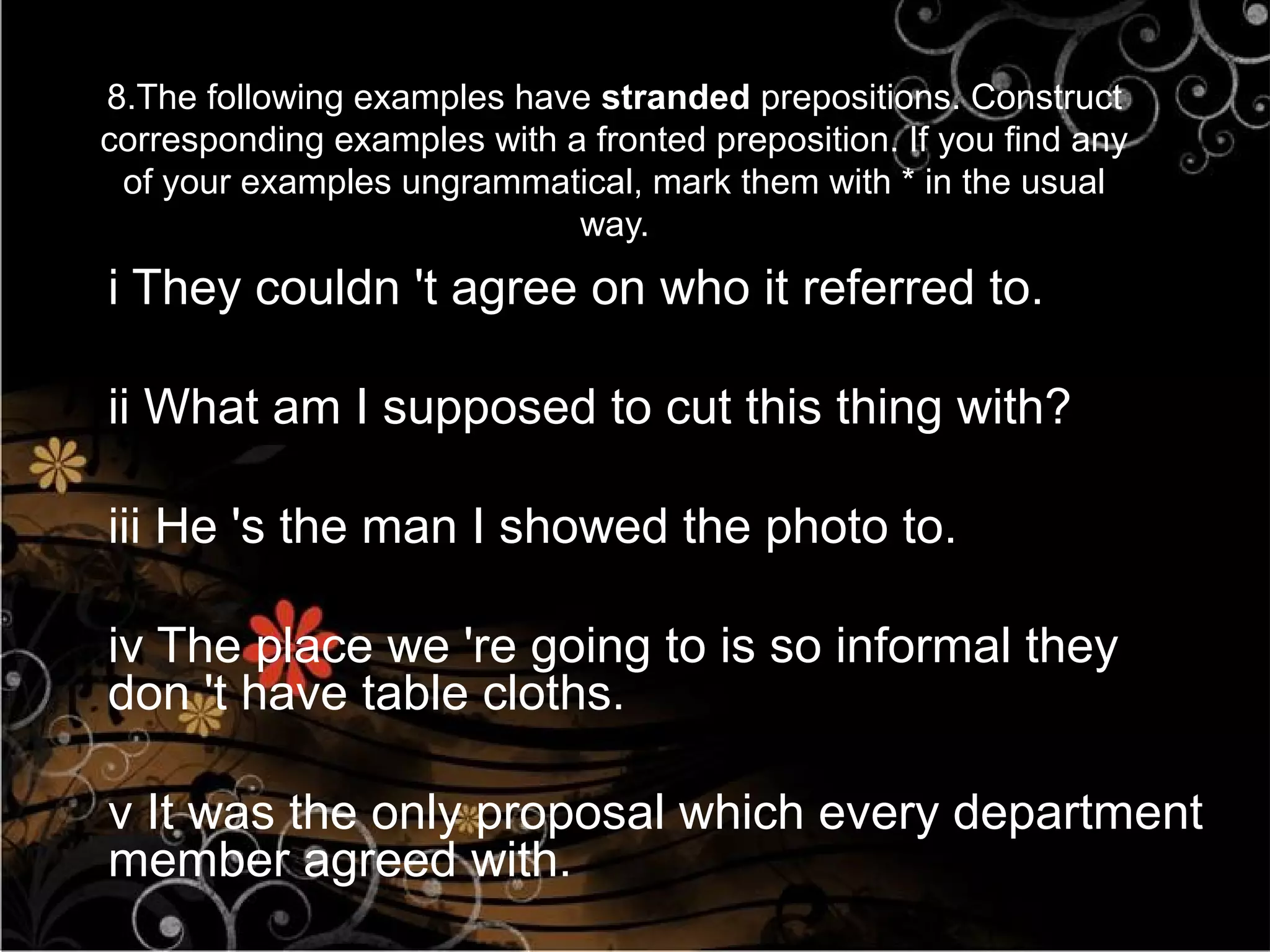
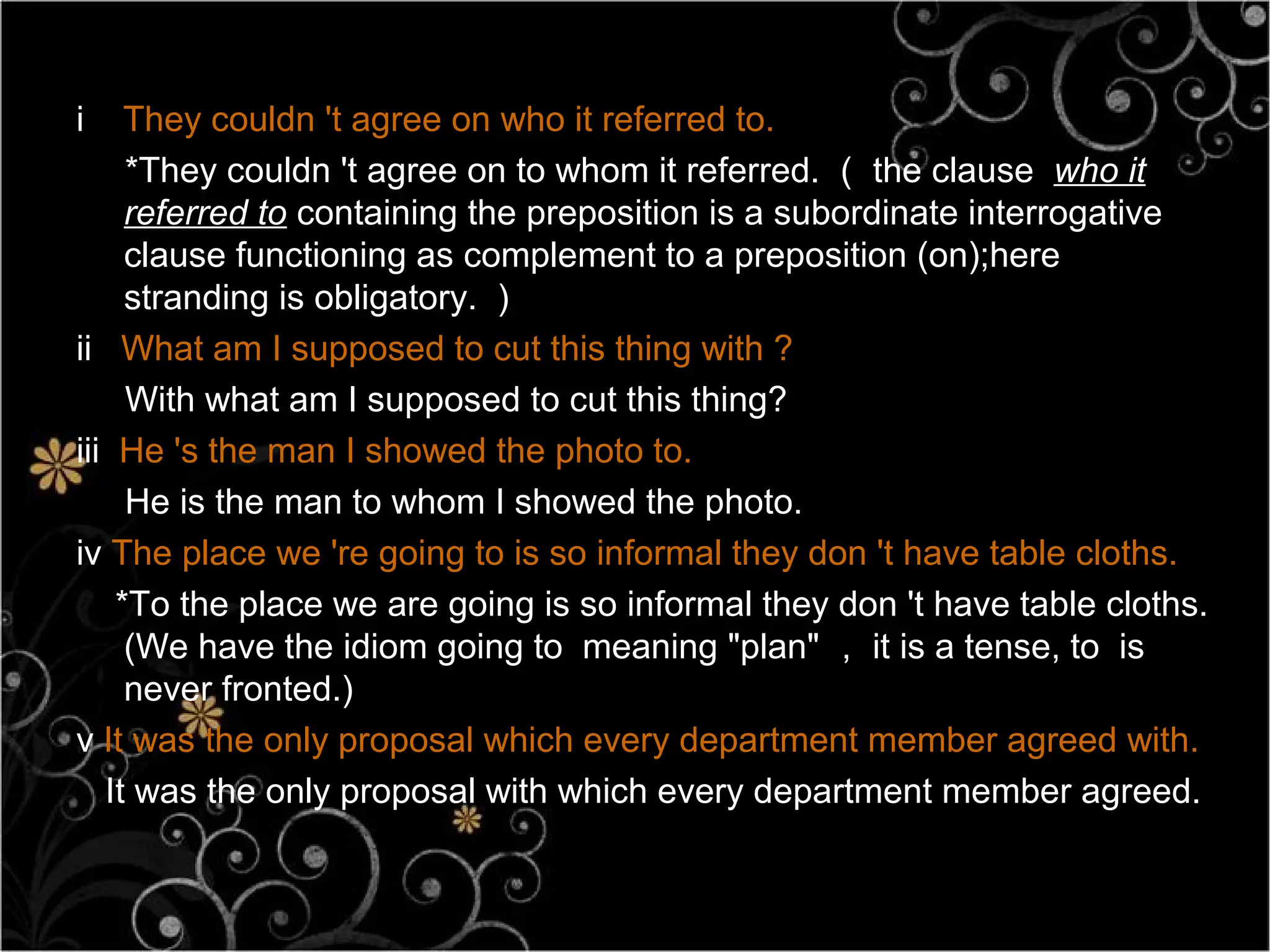
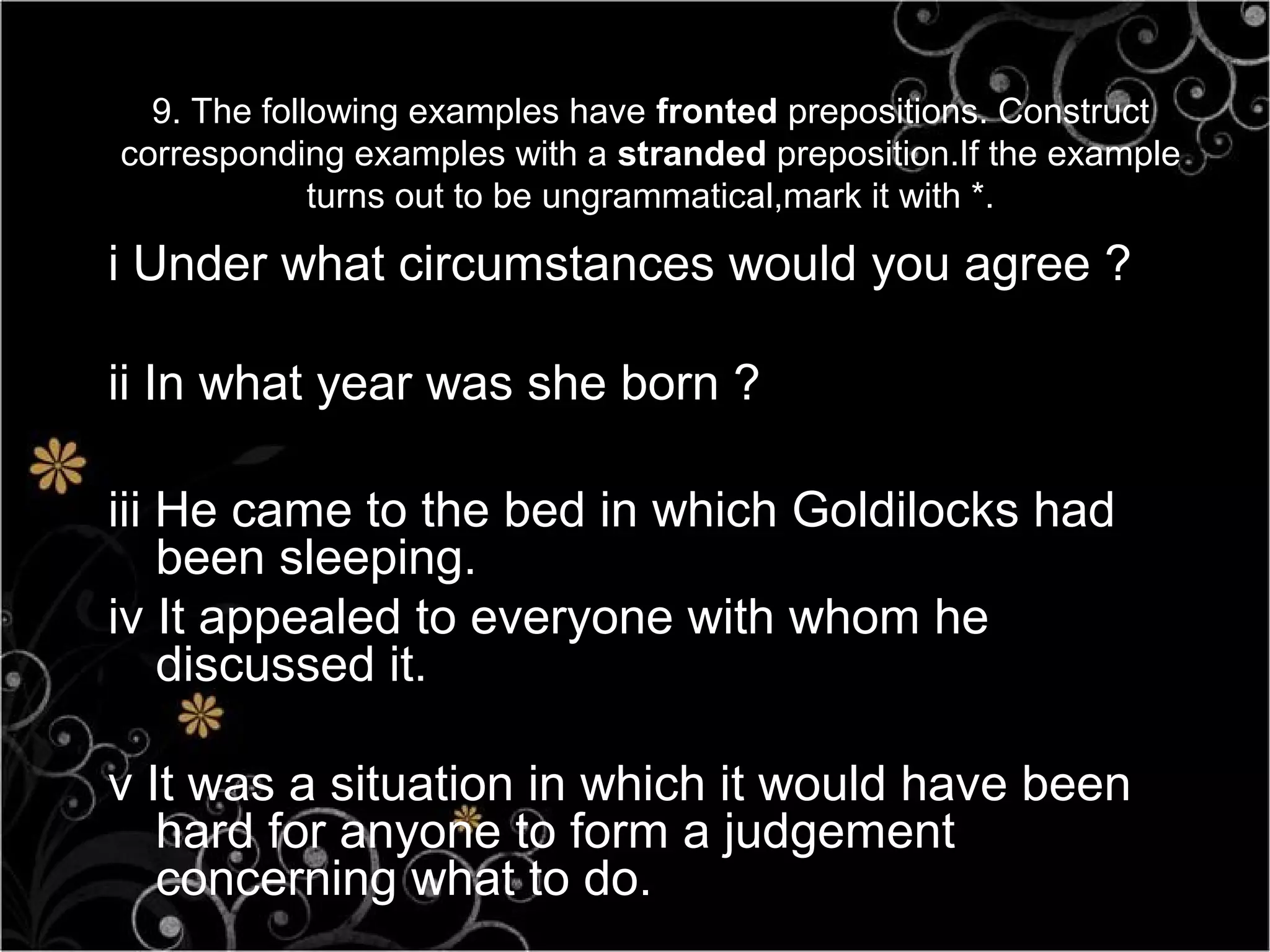
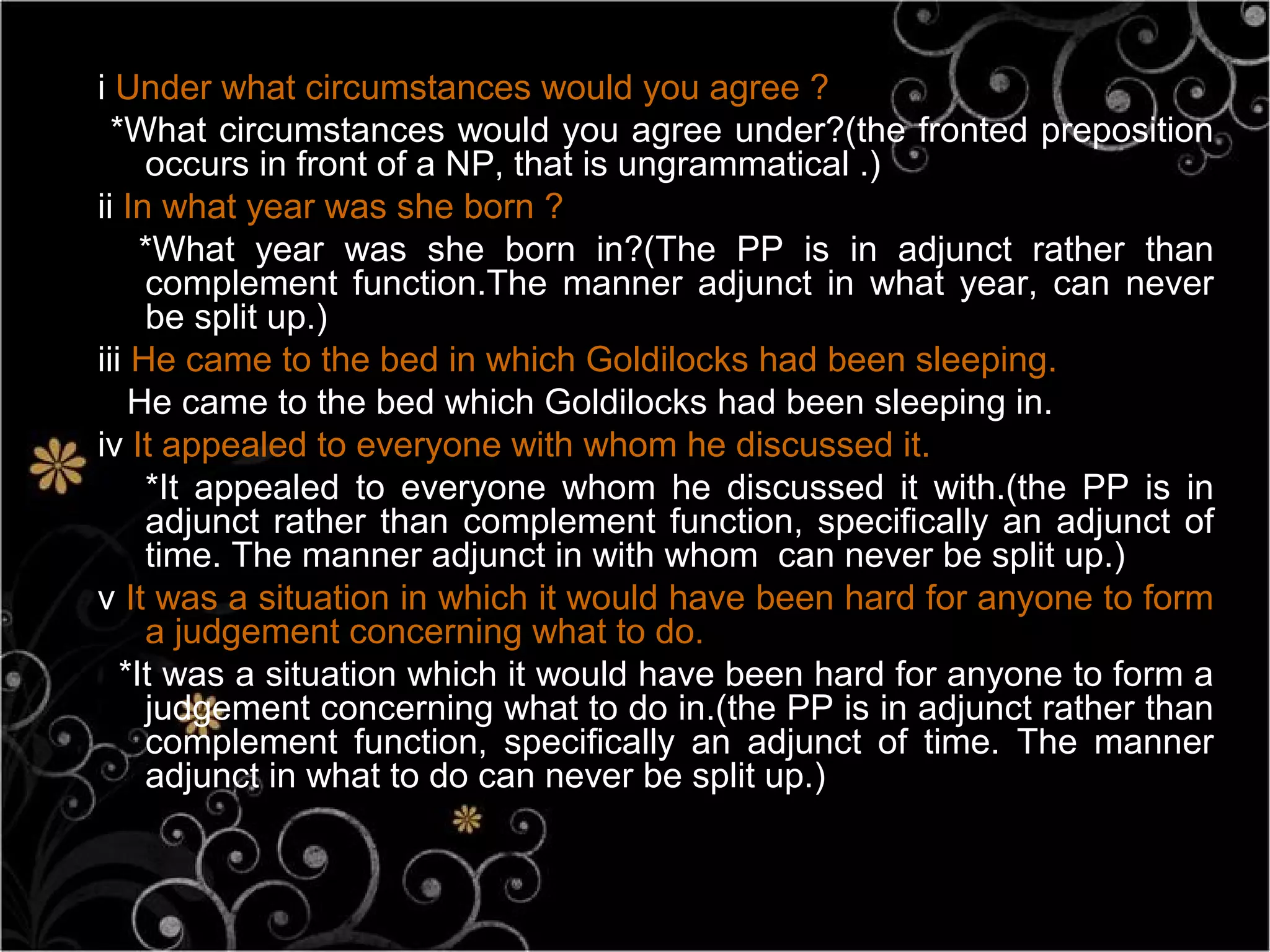
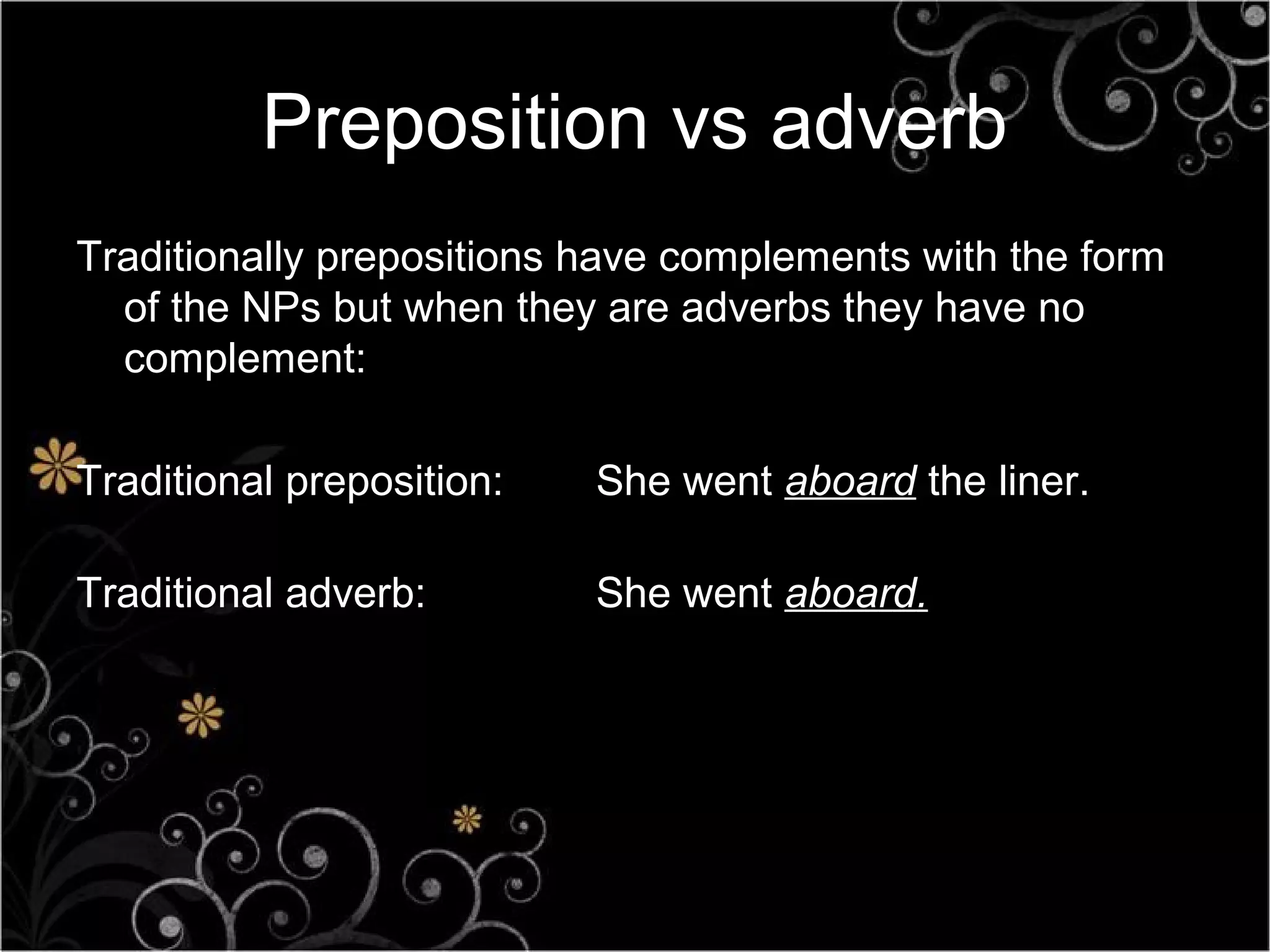
![10. Classify the following words as adverbs or prepositions, basing
your answers on the criteria discussed in Ch. 7 and citing the relevant
evidence.
[i] ahead adv&prep
adv.
(doesn’t require NP
complements)
I could see the end of
[ii] always adv the tunnel ahead.
[iii] indoors adv
[iv] often adv
[v] overseas Adv, adj
A large number of overseas visitors. (adj.)
The company plans moving production
overseas. (adv.)](https://image.slidesharecdn.com/presentationchapter7-130130093937-phpapp02/75/Presentation-chapter-7-20-2048.jpg)